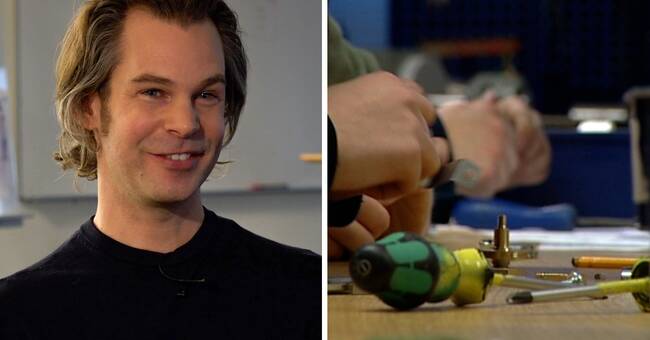For several years, the proportion who have a job within a year after a vocational degree has been at a record high 93 percent.
In 2020, that figure dropped to 87 percent, which was far from what had been feared.
Now there is also a positive trend.
This year, the employment statistics from the Agency for Polytechnics show that 89 percent of those who graduated last year have jobs today.
- It is not a statistically significant increase, but we can be sure that the downward trend is broken.
I think it will return to normal circumstances fairly quickly, based on the fact that demand from the labor market is increasing quite sharply, says Thomas Persson.
Companies did not dare to invest
In the spring of 2020, Annelie Möllenhoff, head of education at Stockholm Institute of Technology, feared that students who would soon go to work and were on internship the last semester would have to interrupt it.
- But they did not have to do that but it has gone very well and many have still got jobs and it has been positive, says Annelie Möllenhoff.
But during the autumn term, employers turned a deaf ear.
- We see a difference from the autumn of 2020 when many companies did not really dare to invest in jobs or internships, she says.
Hotel and restaurant students hard hit
At the same time, the pandemic has hit certain industries harder, and this is also noticeable at polytechnics.
The easiest job prospects are for students in health care and social work.
94 percent of those who graduated in 2020 have jobs today, which is the same level as before the pandemic.
The hardest hit by unemployment are polytechnic students with education in hotels, restaurants and tourism.
Since 2019, the proportion in work has fallen from 91 percent to today 76 percent within a year.
- It is an industry where we have not seen an equally rapid recovery, says Thomas Persson.
Increasing digitalisation a positive trend
In some places, it has even become easier to get a job during the pandemic.
One example is the education area Agriculture, animal care, gardening, forestry and fishing, another is data and IT.
- It is above all digitalisation that has increased during the pandemic and led to a positive trend in these educations, says Annelie Möllenhoff.

